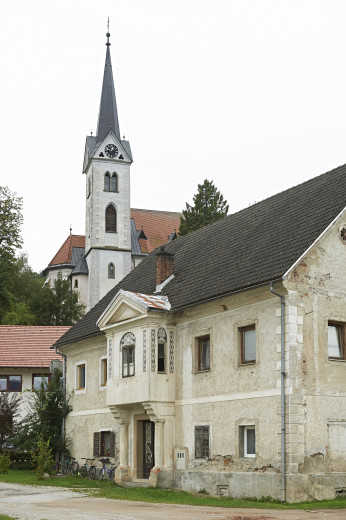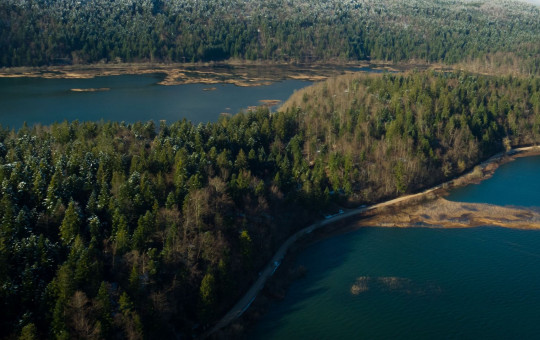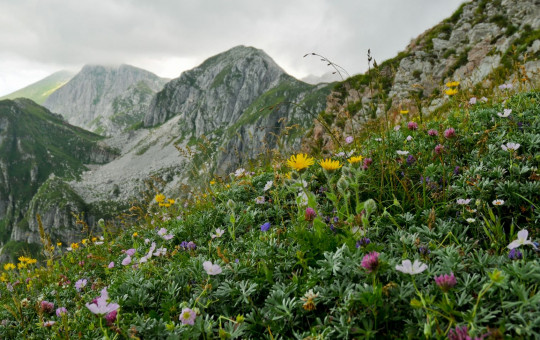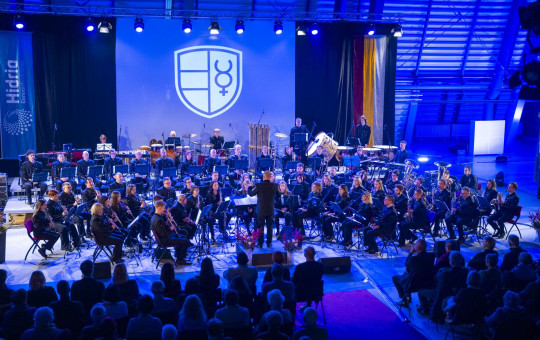Date: 20. April 2020
Time to read: 3 min
The Pahernik Foundation is a unique foundation at the University of Ljubljana that preserves the tradition of close-to-nature forest management. Established in 2005, it is funded from the annual proceeds from forest management. It also grants scholarships to the best students of forestry and finances scientific and research activities in this field.
The Pahernik Foundation advocates close-to-nature forest management and provides scholarships
"Although Vida Ribnikar was not a forester, she knew exactly what the forest meant to her father, so she wanted to continue his noble work and this wonderful story, which is now being nurtured by a group of equally extraordinary people," explains Mateja Kišek, forestry expert and recipient of a Pahernik Institute scholarship.
From the mid-19th to the mid-20th century, the Pahernik family from the Drava Valley contributed significantly to development in all walks of life, from the economic and national to the cultural, social and political. The Paherniks were important and wealthy owners of extensive forests in the Pohorje hills. Besides taking exemplary care of the forests, they also engaged in saw milling, the lumber trade, transporting lumber by rafts and boats on the Drava, generating electricity, as well as cultivating hops and fruit, among other activities.
As nationally conscious Slovenians, they contributed to the strengthening of the Slovenian identity in an ethnically mixed area.
In a period with a strong policy of Germanisation, Pahernik's home was a pillar of Slovenian identity. The family generously supported local Slovenian societies and various other establishments, while their loans helped people in desperate situations.
-
 The last four generations of the Pahernik family, from the early 19th century to the first decade of the 21st century. Photo: Archives of Carinthian Regional Museum
The last four generations of the Pahernik family, from the early 19th century to the first decade of the 21st century. Photo: Archives of Carinthian Regional Museum
-
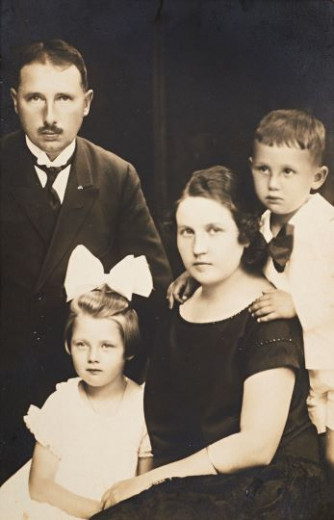 Franjo Pahernik with wife Marija, daughter Vida and son Vojko in 1925. Franjo was a great patriot, advocating the strengthening of Slovenian identity in the nationally mixed Radlje district. Photo: Archives of Carinthian Regional Museum
Franjo Pahernik with wife Marija, daughter Vida and son Vojko in 1925. Franjo was a great patriot, advocating the strengthening of Slovenian identity in the nationally mixed Radlje district. Photo: Archives of Carinthian Regional Museum
Modesty, friendliness and kindness – four generations of the family
The beginnings of such charitable activities go back to the first half of the 19th century, when Franc Pahernik made good money from Pohorje wood. His grandson Franjo Pahernik focused his efforts and knowledge on introducing new methods of forest management that took into account their natural development, and is regarded as the pioneer of applying close-to-nature forest management principles in the Drava Valley. Although he lived to be 94, he did not see the restitution of his 552 hectares of Pohorje forests. As Kišek notes, "This was a time of the violent exploitation of forests – plundering, in fact – in the form of clearing woodland and other major interventions.
Pahernik is considered the Drava Valley's pioneer of close-to-nature forest management, which means that forests are treated according to the principles of nature. Let us take, for example, selection-managed forest, where young and small as well as biggest and old trees are typically found in a small area.
Although it sounds impossible, it is true that the close-to-nature approach in such a forest takes each tree separately and considers what is best for it and its surroundings. The highest economic value is that of stands of spruce, fir and beech, and if we apply close-to-nature management, the forest will remain the same even after 50 years. Franjo Pahernik had an extremely good sense of the forest, but he was also lucky to be able to manage areas that made a selection-managed forest structure possible. Such areas, namely, encompass no more than ten percent of Slovenian forests."
Pahernik's values are still alive
Franjo Pahernik’s values and efforts live on in the professional approach and work of young forestry experts. The best among them receive scholarships from the Pahernik Fund. The criteria for receiving financial support are strict. "Interest in the scholarship is great, but not many are granted," says Mateja Kišek. "There were only five recipients in the first generation of eligible students. The criteria are average grades above 8.6, participation in research projects and at conferences, published articles and recommendations from professors. I received EUR 500 per month for my master’s studies and now the Fund covers the tuition fee for my doctoral studies, which is EUR 3,300 a year. As a young employee, I could not have afforded to follow doctoral studies without the scholarship."
The Pahernik family left a strong mark on Vuhred and the Pohorje Upper Drava area, and traces of its members remain highly visible until today. Franc Pahernik set a great example to his descendants, who followed it consistently.
The most prominent and active member of the family was Franjo Pahernik, while his daughter Vida was able to overcome injustices and resentments and donate valuable forests for good purposes in order to benefit current and future generations. We can thus return to the idea written about the Paherniks in the Slovenec newspaper in 1886: "This is the home of money, but also – and this is the greatest value of all – of modesty, friendliness and kindness."

